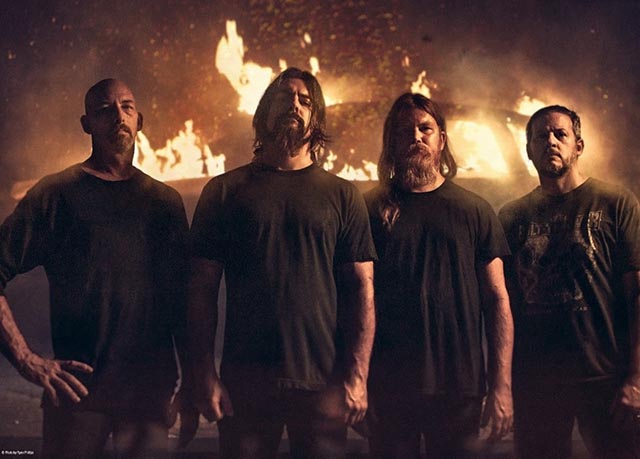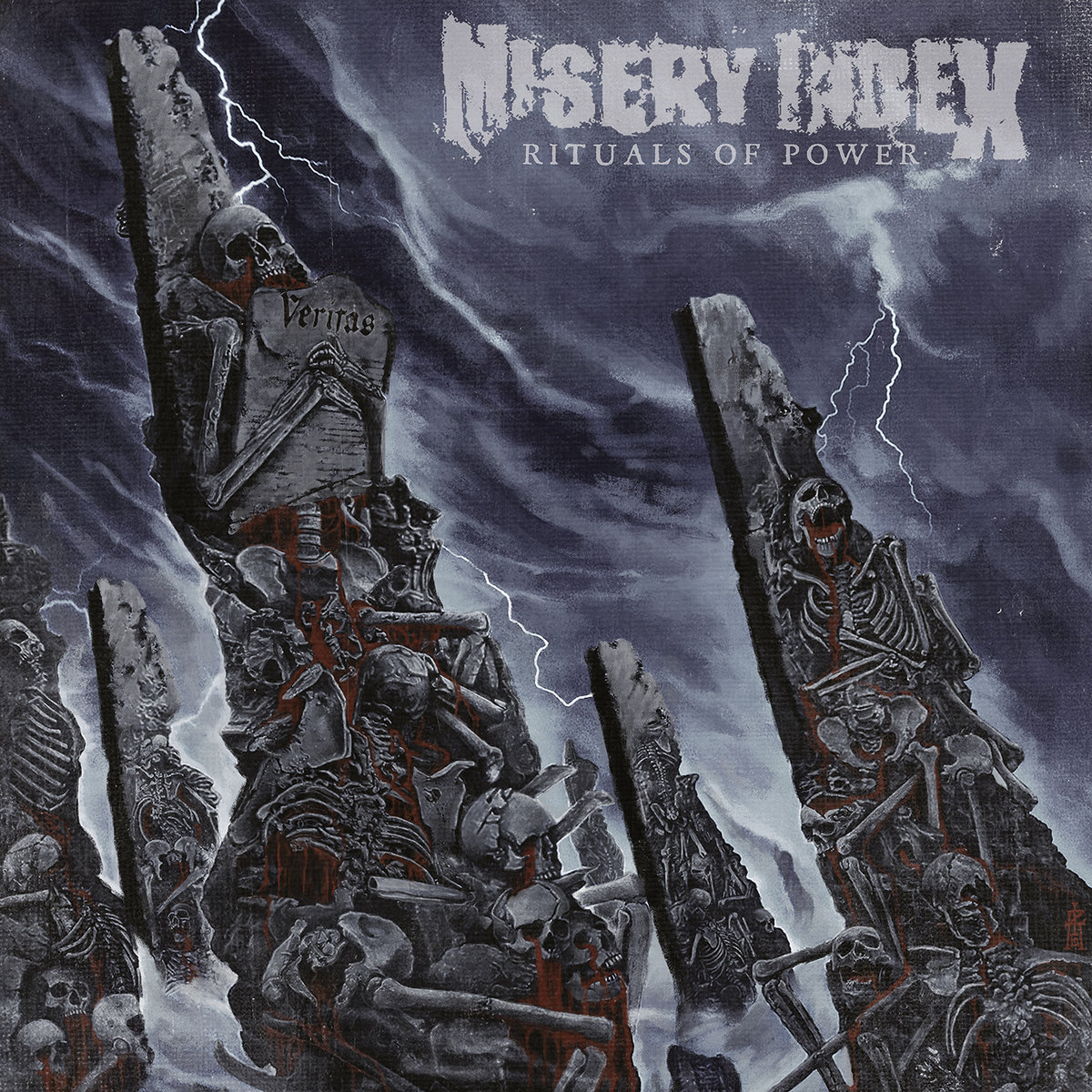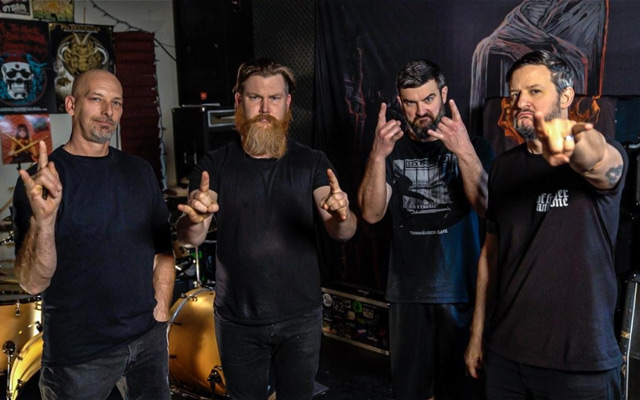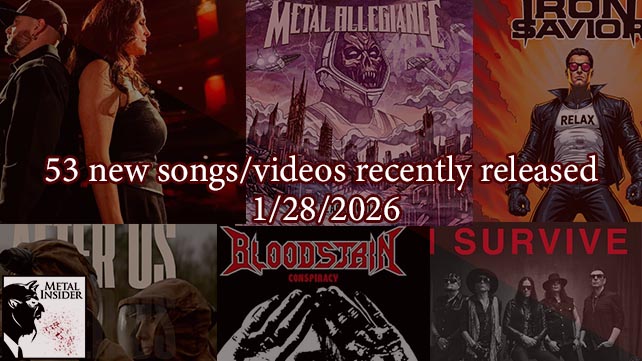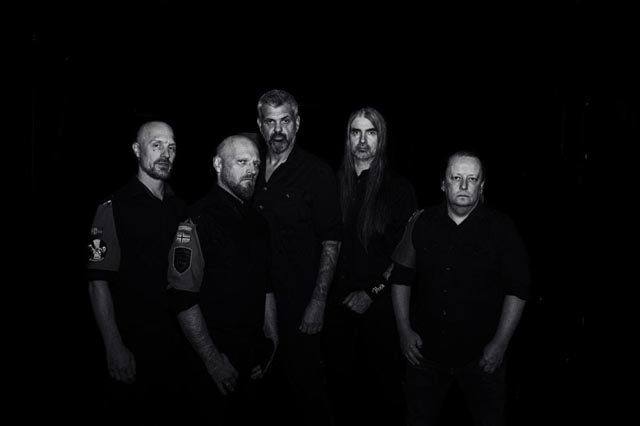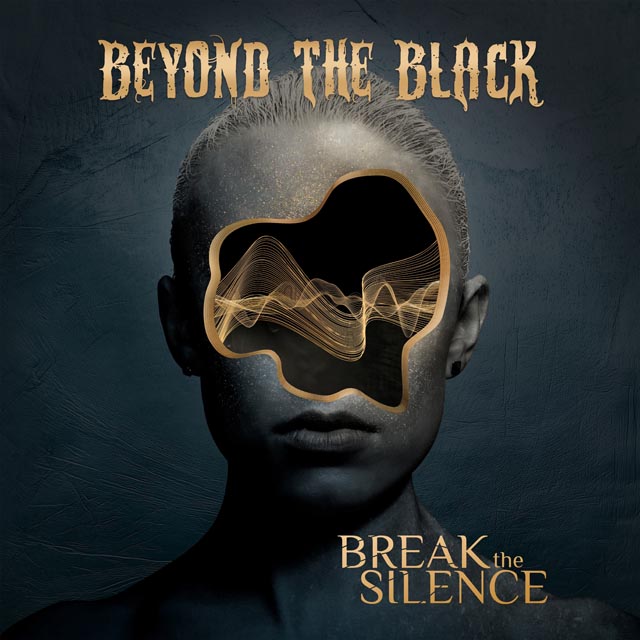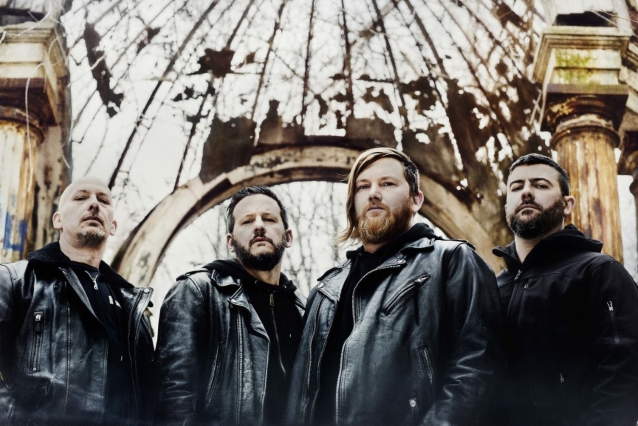
Maryland death metal giants Misery Index’s new album Rituals of Power was released earlier this month (8th) via Season of Mist (order here). While we’ve already expressed how much we enjoyed this record, we were lucky to have bassist/vocalist Jason Netherton take some time out of his touring schedule to speak to us. Jason discussed how happy he is with the new record, how death metal has evolved over the years, and more. Read the discussion below:
When did you guys start working on Rituals of Power?
It was a year and a half ago, maybe, late 2017 when we started demoing stuff. The first time we demoed, we cleared out about a year ago I think the song was “I Disavow.” And that ended up on the album. Most of the material was written in late 2017, early 2018.
How has the writing process change since 2003’s Retaliate?
Quite a bit. Back at that time, even up to our second and third album, we were still meeting up at a rehearsal space living in the same area and practicing together quite often. And even writing, more spontaneously. But now, years later, we all live separately, in different states. We write individually and send a file through the internet. Then we put together songs on the computer. Things like that. It’s a reflection of using modern tools to make the band work. We don’t live in the same area.
Has it helped you creatively?
It takes a lot more perspective with songwriting. It’s a little more drawn out, but songs get a little more refined, a little more ready. We can hear what’s closer to the final product a little better. We can demo them out fully. And easily, using recording software. I think it works better for us.
It’s good on how you’ve adapted to modern technology, which works for you guys due to the distance. What are some of the lyrical themes?
A lot of it has to do with criticism on our everyday life. A lot of the things that are happening and the dark side of technology and our communication tool. It’s what in itself of this so called big news era. It’s a wake up call for civilization to take a look at where we’re headed with how we communicate with each other. And what this means for bigger things like democracy and it’s a thread which runs through all the songs on the record. Of course, different angles.
It’s more or less on our everyday B.S. from media to what-have-you.
Overall, that’s kind of used to reinforced power, I guess power is the prevailing theme though, historically and today.
How would you compare this album, musically, to your prior efforts?
The last album, the work was a lot longer. It was almost 50 minutes. It was sweeping everything in there, a monolithic kind of lengthy work. And this one, definitely a lot more whittled down. It’s a very tight, precise eight-song record. Even though it’s a death metal record, it does lie a lot of conventional metal themes from old school metal and old school death metal to big courses, big hooks, and all of that stuff. The beat system was more refined, that’s probably what pulled from that, I think, it’s a little over thirty minutes, and makes a statement.
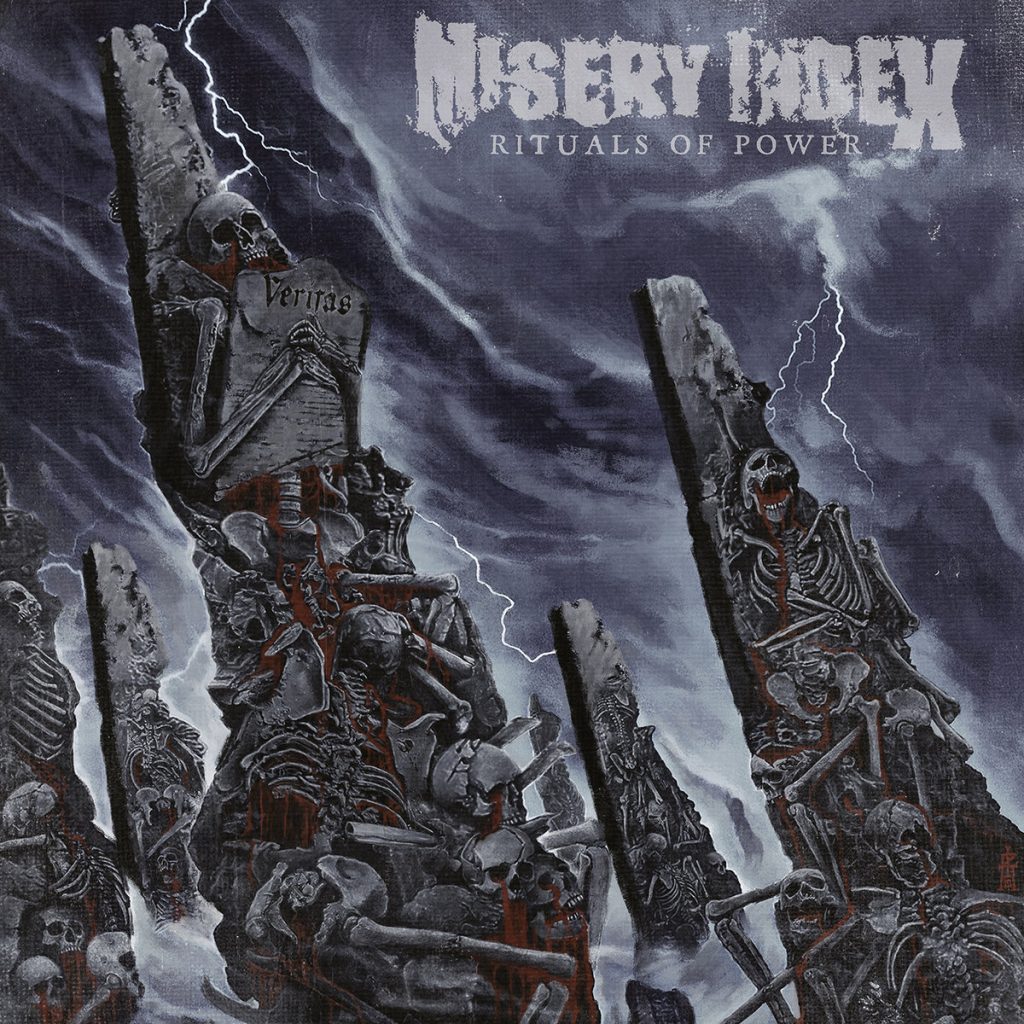
You mentioned some more old school death metal, now with that being said, how has death metal change over the years?
From its origins I guess, the combo origins in the late 80’s early 90’s. It fragmented quite a bit during the 1990s, and there’s several sub-genres, you know, atmospheric, melodic, black death, doom death, all of these different approaches to metal, which, and is found in death metal. And the other kind of noticeable transition was the shift to modern recording technologies in 2000. It’s led to a refinement, technical refinement of death metal. And there has been a backlash of that kind of representing this resurgence of old school death metal, which has been going quite strong now for about 10 years. But, if anything it’s just the much more fragmented dynamic. There’s something out there for every taste. So, it’s changed quite a bit.
And I see you guys are touring in Europe, what other plans do you guys have for this year?
Well, we went to Japan, played two shows there. We have our March European tour. Later we’re going to do a short U.S. jaunt in June, and then there’s another European festival planned in mid-July, but that’s what we have on the horizon right now.
And what music do you guys plan on bringing while on the road?
Well I don’t know, I guess everyone these days, everyone brings their phone, and they just plug in their headphones.
If this was more old school, and you had to create a playlist, what would be on it?
For myself, personally, I have a pretty mixed bag of stuff. I like stuff by Carpenter Brut. You know, old stuff like Cross, newer stuff like Deafheaven. My all time favorites like Killing Joke, Nick Cave and the Bad Seeds. Like, the death metal I like this new one from Of Feather and Bone. And the new Sulphur Aeon, Triptykon. It’s a mixed bag.
That is a mixed bag.
You have a couple of weird, you know for times when you are waiting for a flight, you wanna listen to one instead of the other. There’s always something there.
My last question for you then, is there anything else that you say or add about the album?
Give it a listen if you haven’t heard it yet. That’s what I gotta say. See if you like it. We’re very proud of it. And we’re happy with it – probably more happy with it than any other album to this point. So it’s something we’re very happy and confident there’s something on there, if you’re a metal fan.

